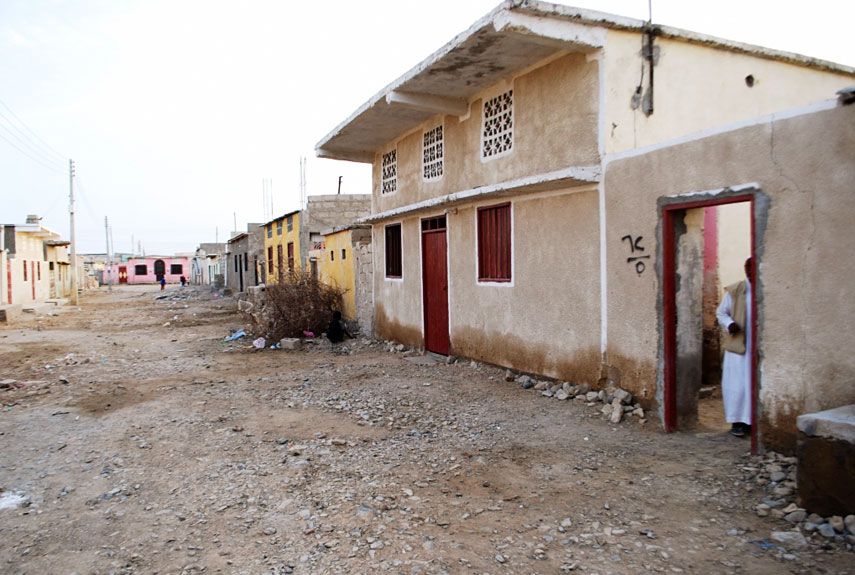A man is born in the 1960s, but in the wrong place. His life is untouched by modernity, and in fact the people who live where he lives — mostly nomads or goatherds or subsistence farmers — carry on as they have for a thousand years. Compared even with the people in this arid Sudanese borderland west of the Red Sea he is poor. He is illiterate, can't even tell you when he was born, and after his parents die when he is a child, he doesn't think to ask why. It's simple: People don't live long, and then they die. The movements of his life are dictated by elemental concerns — what to eat, where to sleep. He collects what he finds and trades what he can — sticks, cardboard, tattered robes, tires. And when your abiding interests are so basic, you likely don't have time for something so luxurious as a personal history or self-regard. He makes no claims for himself, possesses nothing resembling the Western notion of ambition. He has no conception of the outside world — knows little of Europe, has barely heard of America, doesn't have the frame of reference even to conceive of a signal bouncing off a star and sending a picture or someone's voice around the world. By the standards of the late twentieth century, or of any century, really, he is one of the unlucky men. Maybe God will provide something a little better in heaven, inshallah.
And then something most unexpected happens. Improbably, the unlucky man encounters the United States of America and becomes subject to the full might of the mightiest, most consequential power the world has ever known. His life will be changed forever, to be sure. But what one could never have imagined is that the man — not much more than a peasant in rags, after all — would become the very essence of what our mighty country fears the most. What one could never have imagined is that the peasant in rags would change the United States as much as the United States changed him.
Today, nine years after he arrived on the island, Noor Uthman Muhammed is a whiff of a man. His orange prison jumpsuit hangs on his slight body. His cell is new. Until recently, he had been charged with no crime, and he'd lived for the past few years communally. He had a cell where he was locked up at night, but by day he could wander through the block, talk with the other brothers, watch one of the large TVs bolted to the wall, wash his white robe himself, and hang it on the railing to dry. Today, as a convicted war criminal, he lives on a cell block with three other men. They are the men whose cases have gone before military commissions at Guantánamo. Enter his cell and to the right there are a stainless-steel toilet and sink bolted to the wall. The toilet has no seat, the sink no knobs. Across the tiny concrete room, almost close enough to touch from the toilet, is a platform that extends up from the floor and out from the wall. It is topped by a thin blue foam mattress where at night he closes his eyes and dreams.
Read the full article in Esquire.

In summer 2004, two years after he arrived at Guantánamo, Noor was brought to this trailer for his Combatant Status Review Tribunal. The purpose of these rudimentary tribunals was not adjudication but rather compliance with the Supreme Court's order that the detainees have at least some means of challenging their imprisonment. View the full slideshow on Esquire's website.
